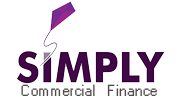Cash-flow; you can’t live without it if you’re in business but, unfortunately, there are numerous times in the life of a business where you feel that you might just have to. At any point in the development and running of a business – whatever the size – cash flow can seem more like a dripping tap than a positive Niagara. Start-ups are most likely to face difficulties with finding ready cash to get their ideas off the ground but finding enough finance to expand or develop new products or markets can be a headache for all businesswomen and men.
Finding start-up finance, loans or investors can be discouraging when you first get your business going but finding the right loan for your business at any stage can be daunting too. Unsecured loans offer the fastest access to cold hard cash and they are an attractive option to many businesses but what are they, what are the pros and cons and are they safe?
What is an Unsecured Business Loan?
Unsecured business loans are much the same as unsecured personal ones; as the name suggests they are not secured against any assets or property you own. For start-ups, who may not own any assets at all, or not wish to risk those that they currently have, the unsecured business loan is definitely a very interesting option.
Unsecured business loans are like your credit card; they give you access to a specific amount of money based on your credit score – basically on your perceived ability to meet re-payments and your reliability as a borrower. Payments need to be maintained over the agreed term and many loans will involve set up fees, administration fees and early exit fees. Late payment fees are also a feature (as with any other loan or type of credit).
Unlike secured loans this type of loan does not require a charge against any assets and it is this feature that makes them attractive to new companies.
The Costs and Advantages
For the lender, an unsecured loan is a riskier prospect than one that is secured against assets. This is true in both the personal and business sector. For this reason, the interest rates on unsecured loans are generally higher, fees may also be more expensive and other associated costs are likely to reflect this fact as well. Unsecured loans, whilst not necessarily the most expensive type of loan, are certainly up there with the higher cost finance options.
Certain factors will also affect the cost of the loan, these include the amount, the period of the loan and the credit score of those applying. Most unsecured business loans will be for a medium-term period rather than long or short ones. Those looking for longer terms may find that a more appropriate form of loan is the secured version.
How Safe is Any Loan?
Unsecured business loans will be least costly to those with a good credit score – which should suggest that you are likely to be able to make the repayments fully and on time. When considering this type of finance, it pays (as ever) to shop around. Given the factors mentioned in the previous paragraph, it may also be worth considering factors such as the term of the loan and the amount. A medium sized loan, for a medium length period may actually make more sense for your business than a small, short term loan, once all cost factors are taken into account.
It’s also worth considering the available options and your business circumstances; an unsecured loan that may well be suitable for an existing SME may not be the right option for a start-up. Other sources of funding should also be explored, start-up grants or loans may be available in some sectors or regions from local or national government – or some specific business activities may be eligible for financial help from these quarters. Whilst unsecured business loans may not necessarily be your first option, they can still offer an excellent way to keep that cash flowing when you need it most!
If you’d like to further discuss unsecured business loans and whether they’d be a good fit for your business, please don’t hesitate to get in touch.


Recent Comments